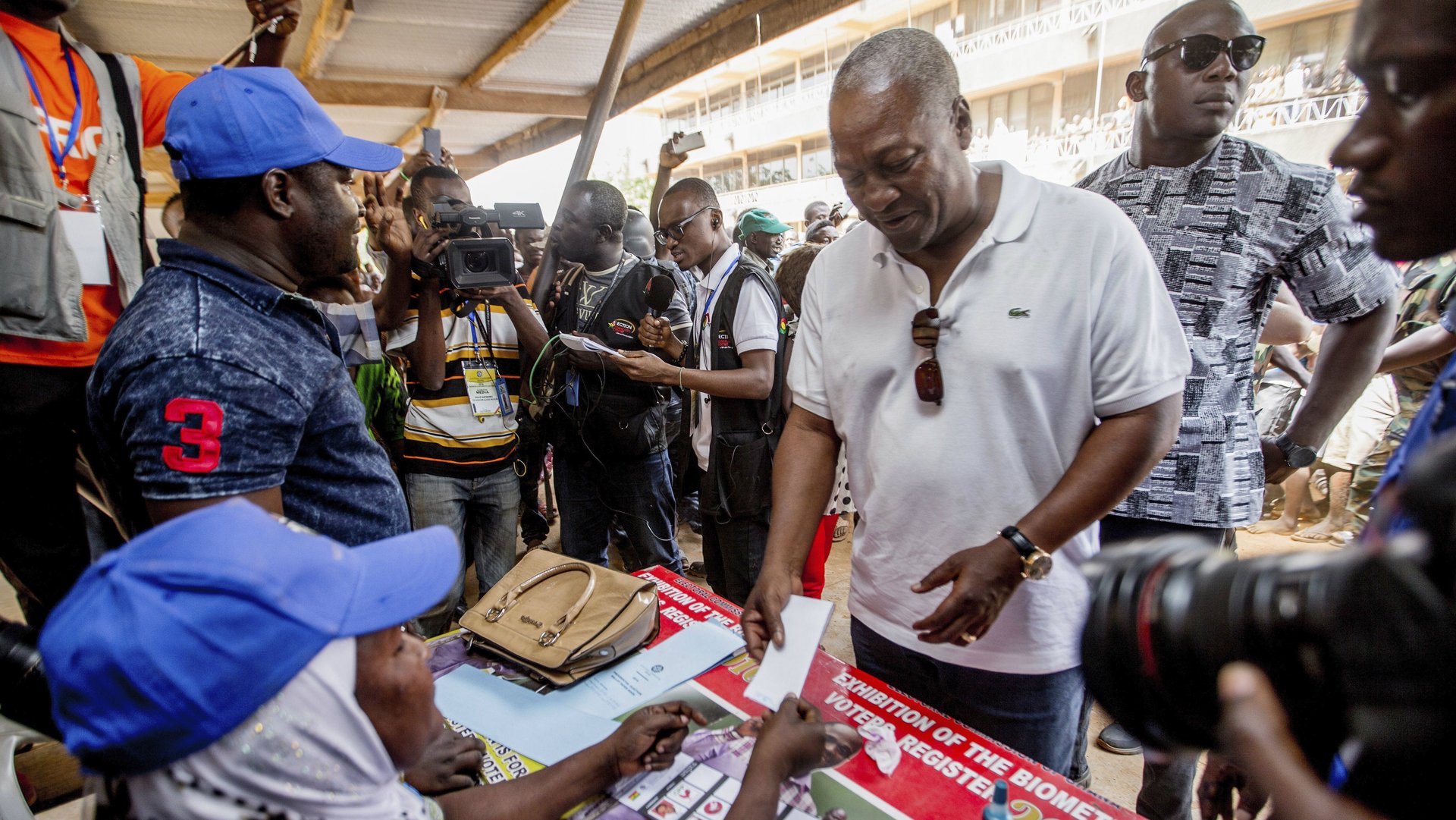The presidential race in Africa’s “beacon of democracy” is currently too tight to call
With polls closing at 5pm local time on Dec. 7, Ghana now faces an anxious wait for the results of its presidential elections.


With polls closing at 5pm local time on Dec. 7, Ghana now faces an anxious wait for the results of its presidential elections.
Keeping with the trend of previous presidential elections, observers currently consider the race between incumbent John Mahama and Nana Akufo-Addo, his main opponent, too close to call. Mahama, president since 2012 after winning a tight race with just over 50% of the vote, has faced intense criticism of his tenure by the opposition. Ghana’s faltering economy on Mahama’s watch has dominated the campaign as opposition candidates accuse the incumbent of mismanaging state resources. Like many other African countries, Ghana has been hurt by falling commodity prices. This year, the economy is set to grow at its slowest rate in more than two decades.
Long considered one of the most stable democracies on the continent, Ghana has a history of peaceful, fair elections. But this year might see Ghana’s normally peaceful transition tested after the leading opposition party of Akufo-Addo called on president John Mahama to concede defeat. The party claimed it had secured a majority win even before an official announcement by Ghana’s electoral commission. In response, Mahama’s campaign described the comments as “treasonable” and irresponsible with the potential to threaten national peace.
Despite its best efforts, Ghana’s electoral commission has been unable to adequately control the narrative and has now been forced to deny fake election results circulating on social media. The commission’s website has also been targeted by hackers.
Should the elections fail to produce a majority winner, the top two candidates will face off in a run-off. Whatever the outcome though, the Dec. 7 polls will have been historic: former first lady Nana Rawlings became the first woman to run for president in Ghana.